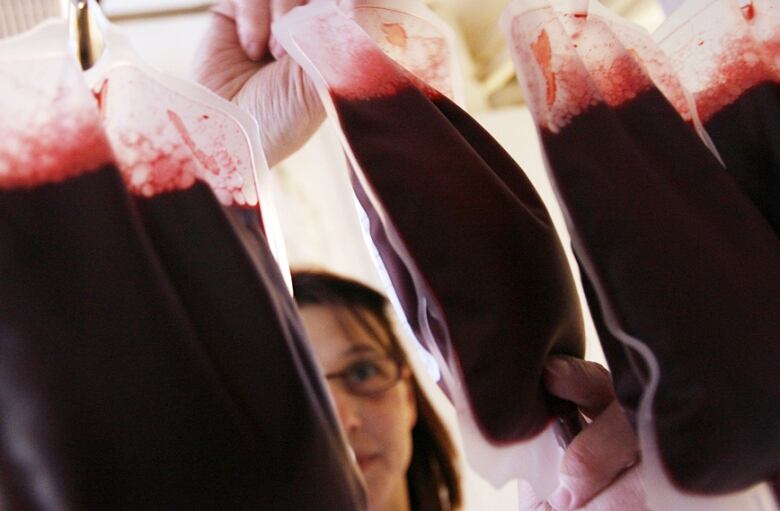Canadian Blood Services to defer donations from travellers to Zika areas
Deferral period following travel to a Zika-endemic region likely to be weeks
Canadian Blood Services will soon refuse blood donations from those who have travelled to countries where the mosquito-borne Zika virus has become widespread.
Chief medical and scientific officer Dr. Dana Devine says the blood collection agency will decide in the next few days which travel destinations would be linked to a temporary ban on donating blood.

Devine says the risk of the Zika virus being transmitted through blood transfusion is low, but Canadian Blood Services doesn't want to take any chances.
- Zika virus outbreak emergency meeting called for Feb. 1, WHO chief says
- Zikavirus cases brought back to Canada are few
- Zika virus: what you need to know
The agency already prohibits Canadians who have travelled to countries where malaria is endemic from donating blood for a period of 12 months.
The deferral period following travel to a Zika-endemic region would be much shorter likely measured in weeks as the virus stays in the body for a much shorter amount of time than malaria does.
Devine says the organization is in the midst of deciding how long the deferral should be.
Health Minister Jane Philpott saidHma-Qubecis also evaluating whether it needs to change its policies for travellers.
"There's been not one observed case of getting Zika virus from a blood transfusion,"saidDr.JoelKettner, medical director of theInternational Centre for Infectious Diseases in Winnipeg.
In most people, the Zika virus transmitted through an infected mosquito causes mild symptoms. But experts are investigating a possible link between Zika infection in pregnant women and infants born with small heads and underdeveloped brains, a condition known as microcephaly.
The Public Health Agency of Canada has advised that pregnant women and those considering becoming pregnant may want to postpone travel to areas where Zika is circulating.
With files from CBC News












_(720p).jpg)


 OFFICIAL HD MUSIC VIDEO.jpg)
.jpg)



























































































